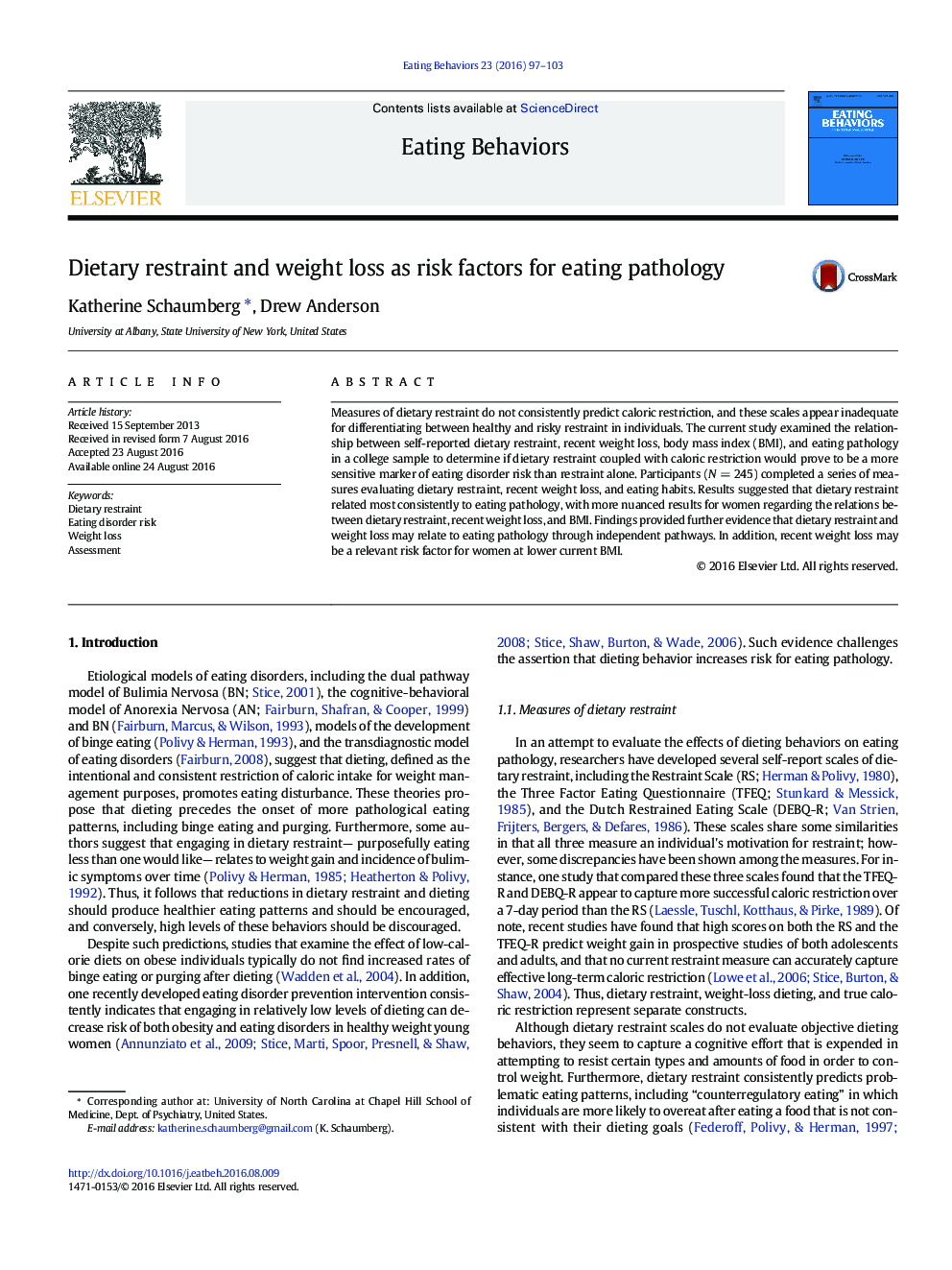| Article ID | Journal | Published Year | Pages | File Type |
|---|---|---|---|---|
| 7265059 | Eating Behaviors | 2016 | 7 Pages |
Abstract
Measures of dietary restraint do not consistently predict caloric restriction, and these scales appear inadequate for differentiating between healthy and risky restraint in individuals. The current study examined the relationship between self-reported dietary restraint, recent weight loss, body mass index (BMI), and eating pathology in a college sample to determine if dietary restraint coupled with caloric restriction would prove to be a more sensitive marker of eating disorder risk than restraint alone. Participants (NÂ =Â 245) completed a series of measures evaluating dietary restraint, recent weight loss, and eating habits. Results suggested that dietary restraint related most consistently to eating pathology, with more nuanced results for women regarding the relations between dietary restraint, recent weight loss, and BMI. Findings provided further evidence that dietary restraint and weight loss may relate to eating pathology through independent pathways. In addition, recent weight loss may be a relevant risk factor for women at lower current BMI.
Related Topics
Life Sciences
Neuroscience
Behavioral Neuroscience
Authors
Katherine Schaumberg, Drew Anderson,
